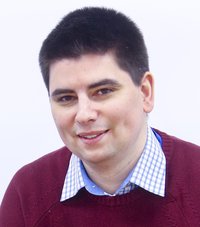Hydrogen is seen as an important energy carrier in a future sustainable economy. It can also be used in various industrial processes such as fertilizer production, refining and making clean steel. When hydrogen is produced with green energy and water, it is called 'green'. The National Growth Fund programme GroenvermogenNL was created to accelerate the transition to a green hydrogen economy. Besides the technical challenges, there are also social challenges, which may hinder the transition. For example, is there sufficient societal support for green hydrogen? The transport pipes and storage tanks will take up space, and the spatial incorporation of electrolysers and the wind turbines and solar panels from which the green electricity is to be generated may also cause social resistance.
The consortium
HySUCCESS (Social, User aCCeptable, Economically Sustainable Systems for hydrogen) emerged from one of the seven R&D packages of GroenvermogenNL. The consortium aims to comprehensively investigate the socio-economic factors influencing the role of hydrogen in a sustainable energy system. It will evaluate how economic, legal, policy and socio-cultural aspects may hinder or promote the implementation of green hydrogen. In addition, HySUCCESS wants to develop strategies to overcome barriers to scale up green hydrogen production and use. It will also evaluate the environmental impact of using green hydrogen, and devise measures to mitigate negative impact. These insights will clarify the potential of green hydrogen in future energy and materials systems.
Five themes
The project will have 5 subtasks, and different Dutch knowledge institutions will spearhead each theme. CWI co-leads the theme ‘markets and business models’, together with TU Delft. “We want to develop new models for automated hydrogen-electricity markets”, senior researcher Valentin Robu explains. “For example, hydrogen can be an important source of flexibility and storage, and can relieve network congestion, which is a major problem for the power grid in the Netherlands at the moment.”

Robu and a PhD student within the Intelligent and Autonomous Systems group, are going to develop intelligent systems and AI methods to design strategies for devices (for example, reversible hydrogen fuel cells) used to participate in markets with multiple energy sources. “Furthermore, using multi-agent systems, we can also simulate the operation of such markets at different time and spatial scales, and develop novel market designs for integrated hydrogen-electricity systems.”
Other themes within the consortium are:
- Hydrogen in future energy (University of Utrecht, HAN University of Applied Sciences)
- Legal framework (University of Groningen, Hanze University of Applied Sciences)
- Public acceptability of hydrogen (Leiden University, Utrecht University)
- Research integration (University of Groningen, Tilburg University)
About the partners
The consortium includes 10 universities, 2 research institutes, 5 universities of applied sciences, one research and technology organization, and 3 industry partners. These parties provide the expertise needed to make the project a success.
About the National Growth Fund Programme GroenvermogenNL
The National Growth Fund Programme GroenvermogenNL is the green capability investment programme for the Dutch economy and society. Through this programme, green hydrogen should be the pulling force for the transition from a fossil-based society and industry to sustainable energy supply. This will enable the Netherlands to build a new industry and an attractive business climate. To make this transition possible, well-trained people and a strong structure of knowledge sharing are necessary. The investment programme runs until 2028.
Sources: NWO and University Groningen
Header photo: iStock
